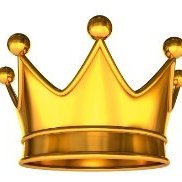All You Want To Know About Thaksin
-
Recently Browsing 0 members
- No registered users viewing this page.
Announcements
-
Topics
-
-
Popular Contributors
-
-
Latest posts...
-
7
Thai - Cambodia Conflict Thai Senators Clash Over Funding for Cambodian Students
Good response! Support for the above is here: https://chatgpt.com/s/t_689fe727b9688191b11bc138c0ecdf7b Apparently the same protection does not apply to secondary education in the USA. -
6
TM30 needed for new passport?
I recently had a new passport, and on return to Thailand, went and did a new TM30 . Was it really needed? not sure. I did it so there would be no problems when it came time to do the next visa extension. One less thing to go wrong. -
4
Feature Thailand's Visa Shake-Up Threatens Retiree Paradise
AN the hub of alarmist nonsense. 18 years on retirement extensions and counting. -
40
Traffic Pattaya's Helmet Dilemma: German Tourists Weigh In
For an egg shell with styrofoam... but better than nothing I guess. -
40
Traffic Pattaya's Helmet Dilemma: German Tourists Weigh In
All that study proves is that more riders wear helmets where it's a legal requirement. -
38
I'm considering taking Metformin for off label reasons
I do have some kidney disease, but it’s stabilized since I changed medication with known kidney toxicity. Metformin is believed to have some kidney protection effects. The major study in off-label use was about 2,000 nuns IIRC.
-
-
Popular in The Pub








Recommended Posts
Create an account or sign in to comment
You need to be a member in order to leave a comment
Create an account
Sign up for a new account in our community. It's easy!
Register a new accountSign in
Already have an account? Sign in here.
Sign In Now